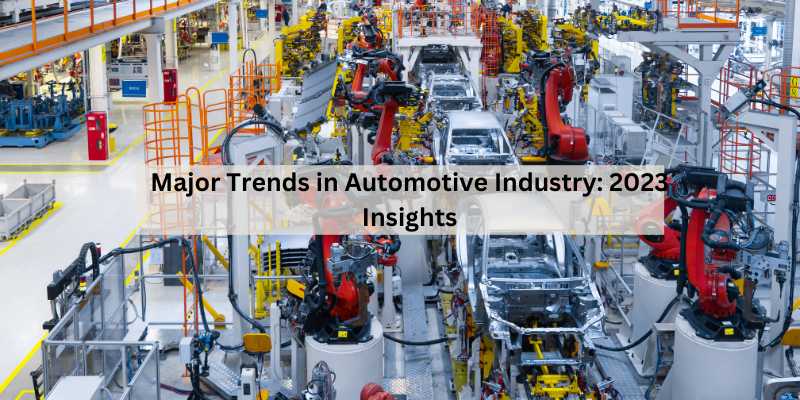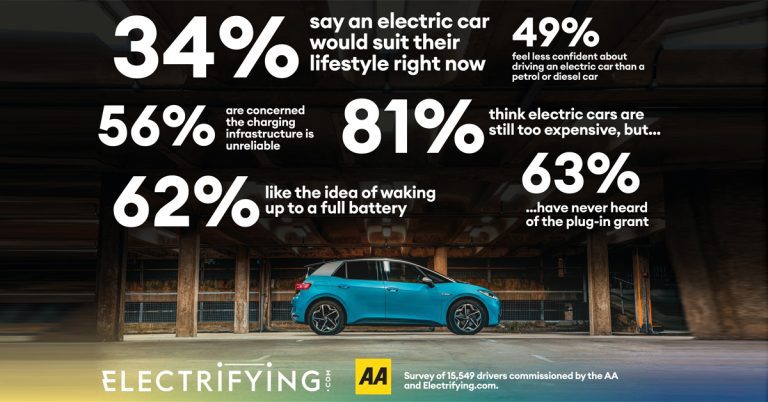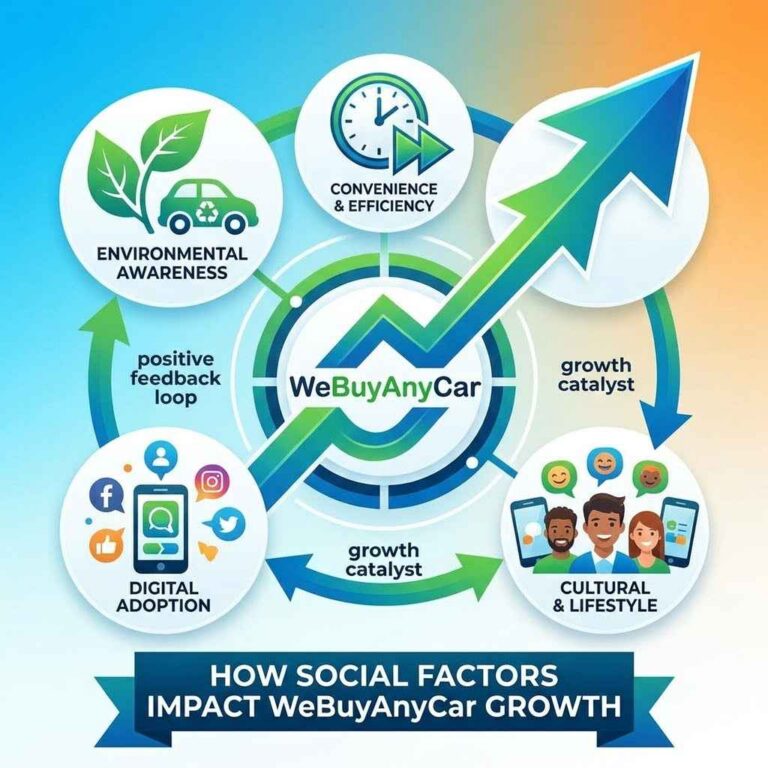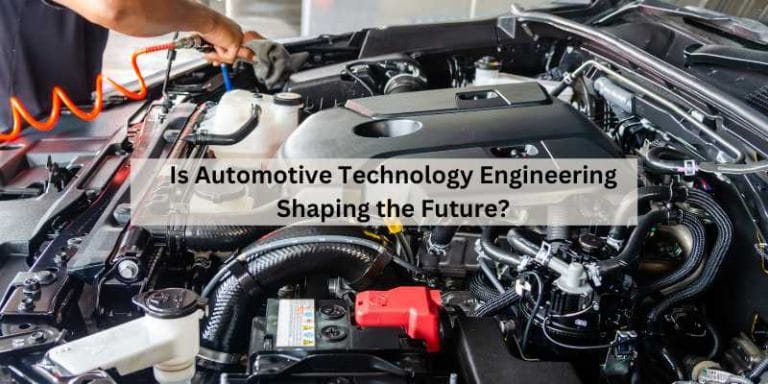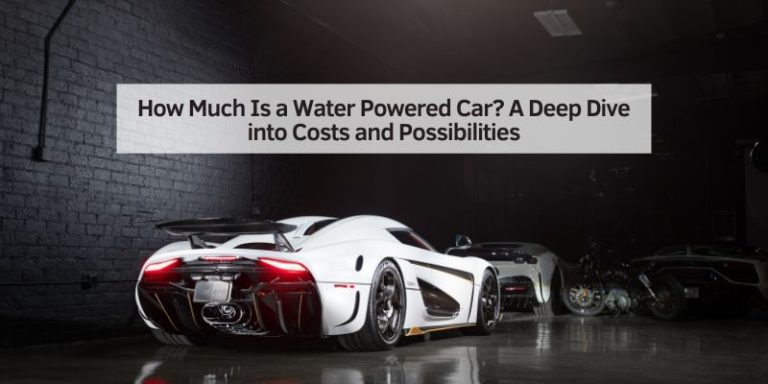Major Trends in Automotive Industry: 2026 Insights
The major trends in the automotive industry include electrification, digitalization, urbanization, sustainability, and individualization. These trends are rapidly shaping the future of the automotive sector, driving significant changes and innovations.
As the industry continues to evolve, these key trends are influencing the development of new technologies, the design of vehicles, and the overall consumer experience. The automotive industry is experiencing a major shift towards electric vehicles, with a focus on sustainable and eco-friendly transportation solutions.
Digitalization is revolutionizing the way vehicles are designed, manufactured, and operated, while urbanization is leading to the development of smart mobility solutions. Furthermore, the emphasis on sustainability is driving the adoption of environmentally friendly practices and materials in automotive production. Lastly, individualization is catering to the diverse preferences and needs of consumers, leading to personalized automotive experiences. These trends are reshaping the automotive industry and driving it towards a more innovative and sustainable future.
Electrification Of Vehicles
The electrification of vehicles is one of the major trends shaping the automotive industry. With a focus on sustainability and reduced emissions, the shift towards electric vehicles is accelerating, driving innovation and reshaping the future of transportation.
Rise Of Electric Vehicles
The automotive industry is undergoing a significant transformation with the rise of electric vehicles (EVs). As concerns about climate change and environmental sustainability continue to grow, more and more consumers are turning to electric vehicles as a greener alternative to traditional gasoline-powered cars. EVs are powered by electricity, which significantly reduces greenhouse gas emissions and dependence on fossil fuels.
With advancements in technology and improvements in battery efficiency, electric vehicles have become more accessible and practical for everyday use. Major automakers are investing heavily in the development and production of electric vehicles, offering a wider range of models to cater to different consumer needs and preferences.
One of the key advantages of electric vehicles is their lower operating costs compared to conventional cars. Electric vehicles have fewer moving parts and require less maintenance, resulting in reduced maintenance and repair expenses for owners. Additionally, electric vehicles benefit from government incentives and subsidies, making them more affordable for consumers.
Charging Infrastructure Expansion
As the popularity of electric vehicles continues to rise, the need for a robust charging infrastructure becomes increasingly important. Charging infrastructure refers to the network of charging stations where electric vehicles can be charged. Currently, one of the challenges for electric vehicle owners is the availability and accessibility of charging stations.
However, the automotive industry is actively working towards expanding the charging infrastructure to meet the growing demand. Governments, utility companies, and private organizations are collaborating to install more charging stations in public places, residential areas, and workplaces. This expansion aims to provide electric vehicle owners with convenient and reliable charging options, alleviating concerns about range anxiety.
Moreover, there is a focus on developing fast-charging technologies that can significantly reduce the charging time for electric vehicles. Fast-charging stations can charge an electric vehicle in a matter of minutes, similar to the time it takes to refuel a conventional car. These advancements in charging technology will further enhance the practicality and convenience of electric vehicles.
In conclusion, the electrification of vehicles is a major trend in the automotive industry, driven by the need for sustainable transportation solutions. The rise of electric vehicles and the expansion of charging infrastructure are transforming the way we commute and reducing our impact on the environment. As technology continues to advance, electric vehicles are expected to become even more prevalent in the automotive market, shaping the future of transportation.
Autonomous Driving Technology
Autonomous Driving Technology is revolutionizing the automotive industry, paving the way for self-driving cars to become a common sight on roads.
Advancements In Self-driving Cars
- Artificial intelligence and sensors enable self-driving cars to navigate roads.
- Companies like Tesla and Google are at the forefront of developing autonomous vehicles.
- Self-driving cars are becoming more reliable and efficient in their operations.
Impact On Safety And Regulations
- Autonomous driving technology aims to reduce accidents caused by human error.
- Regulations are being developed to ensure the safe integration of self-driving cars.
- Insurance policies and liability laws are evolving to address autonomous vehicle risks.
Connectivity And Smart Cars
The automotive industry is experiencing a transformation driven by the integration of connectivity and smart technologies. The emergence of smart cars and the integration of Internet of Things (IoT) in vehicles are revolutionizing the driving experience, offering a range of benefits for drivers and traffic management.
Integration Of Iot In Vehicles
The integration of IoT in vehicles involves the incorporation of smart sensors and devices that enable seamless communication and data exchange. These connected systems enable vehicles to interact with each other, as well as with infrastructure and other devices, paving the way for enhanced safety, efficiency, and convenience on the roads.
Benefits For Drivers And Traffic Management
Smart cars equipped with IoT technology offer a host of benefits for drivers, including real-time traffic updates, predictive maintenance alerts, and enhanced vehicle security features. Furthermore, the integration of IoT in traffic management systems facilitates improved traffic flow, reduced congestion, and enhanced overall road safety.
Vehicle Design And Personalization
Explore the major trends in the automotive industry, focusing on vehicle design and personalization. With advancements in electrification, digitalization, urbanization, sustainability, and individualization, the industry is evolving rapidly to meet changing consumer demands and technological innovations.
Customization Trends
The automotive industry is witnessing a shift towards personalization and customization. Consumers are looking for vehicles that reflect their unique styles and preferences. To cater to this demand, manufacturers are offering a wide range of customization options, from exterior paint colors to interior trims and finishes. Additionally, some carmakers are offering customizable features that allow drivers to adjust settings such as suspension, steering, and engine performance to suit their driving style.
Sustainable Materials Usage
As sustainability becomes an increasingly important consideration for consumers, car manufacturers are incorporating more eco-friendly materials into their designs. Sustainable materials, such as recycled plastics and natural fibers, are being used in everything from seat upholstery to dashboard components. This not only helps reduce the environmental impact of the automotive industry, but also appeals to consumers who are looking for more environmentally conscious products.
In conclusion, vehicle design and personalization are major trends in the automotive industry. Customization options and sustainable materials usage are just a few examples of how car manufacturers are adapting to consumer demands and evolving market trends. By offering more personalized and eco-friendly vehicles, the automotive industry is poised for continued growth and success in the future.
Shared Mobility And Subscription Services
Shared Mobility and Subscription Services are revolutionizing the automotive industry, offering consumers flexible and convenient options for transportation.
Growth Of Car-sharing Platforms
Car-sharing platforms are on the rise, providing cost-effective solutions for individuals who do not require a personal vehicle on a daily basis.
- Increasing popularity of ride-sharing apps
- Reduced traffic congestion in urban areas
- Environmentally friendly transportation option
Oem Subscription Model Challenges
Original Equipment Manufacturers (OEMs) face challenges in implementing successful subscription models due to various factors.
- Complex pricing structures
- Difficulty in predicting customer preferences
- Competing with traditional ownership models
Advances In Vehicle Manufacturing
The automotive industry is continuously evolving, and one of the most significant areas of advancement is in vehicle manufacturing. These advancements are shaping the future of automotive production, with a strong focus on innovation and efficiency.
Adoption Of 3d Printing
3D printing is revolutionizing the manufacturing process in the automotive industry. This technology allows for the creation of complex and customized parts with precision and speed. It enables manufacturers to produce lightweight yet durable components, leading to improved fuel efficiency and performance in vehicles.
Shift Towards Agile Manufacturing
Agile manufacturing methods are gaining traction in the automotive industry, allowing for more flexibility and responsiveness in production processes. This shift enables manufacturers to quickly adapt to changing market demands and incorporate new technologies into vehicle assembly. As a result, it enhances the overall efficiency and quality of automotive manufacturing.
Environmental Impact And Regulations
The automotive industry is significantly impacted by environmental concerns and regulations. Manufacturers are focusing on reducing emissions and adhering to strict government policies.
Emission Control Technologies
Automakers are investing in advanced technologies to control and reduce vehicle emissions. Innovations like catalytic converters and particulate filters are widely used to minimize harmful pollutants.
Government Policies And Incentives
- Government regulations drive automakers to comply with emission standards.
- Incentives for eco-friendly vehicles encourage the adoption of electric and hybrid cars.
- Policies promote sustainable practices and the development of cleaner transportation solutions.
Consumer Behavior Shifts
In the ever-evolving automotive industry, consumer behavior shifts are driving significant changes.
Preference For Digital Purchasing
Consumers increasingly prefer digital platforms for purchasing vehicles.
- Convenience of browsing online inventory
- Ability to compare prices easily
- Streamlined financing options
Demand For Advanced Safety Features
There is a growing demand for vehicles equipped with advanced safety features.
- Adoption of autonomous emergency braking systems
- Integration of lane-keeping assist technology
- Increasing popularity of adaptive cruise control
Frequently Asked Questions
What Is The Automotive Industry Trend?
The major trend in the automotive industry is the shift towards autonomous, electric, connected, and enriched cabins with zonal architectures. These five megatrends are transforming the industry, resulting in a significant impact on memory and storage requirements for use in vehicles.
The shift towards electric vehicles is one of the most important trends in the industry. Other significant trends include autonomous driving technology, connectivity, smart cars, and challenges for OEM subscription models.
What Are The Mega Trends In The Automotive Industry?
The mega trends in the automotive industry are autonomous driving, electrification, enriched cabins, connectivity, and zonal architectures. These trends are transforming the industry with a significant impact on memory and storage requirements for use in vehicles.
What Is Changing In The Automotive Industry?
Five major trends reshaping the automotive industry are electrification, digitalization, urbanization, sustainability, and individualization.
What Are The Trends For Vehicles In 2030?
By 2030, the automotive industry will experience major trends such as the shift towards electric vehicles, increased digitalization, urbanization, sustainability, and individualization. These trends will significantly impact the industry’s growth and development.
Conclusion
The automotive industry is experiencing major trends that are reshaping the landscape. The shift towards electric vehicles, advancements in autonomous driving technology, enhanced connectivity, and the demand for sustainable and personalized options are driving the industry forward. These trends are not only transforming the way vehicles are manufactured and operated but also presenting new opportunities for innovation and growth.
It is crucial for businesses in the automotive industry to stay updated and adapt to these trends in order to thrive in the dynamic market.

